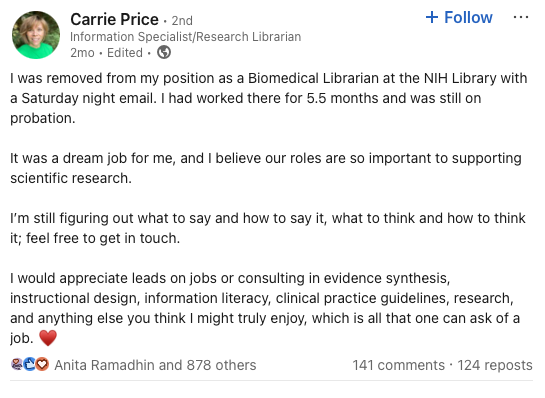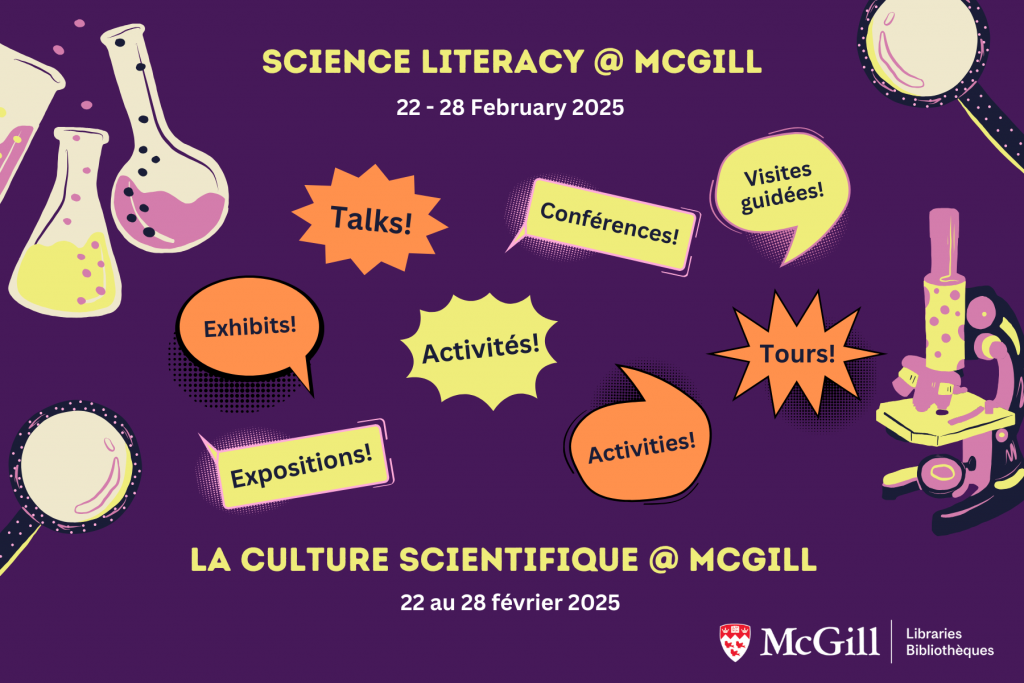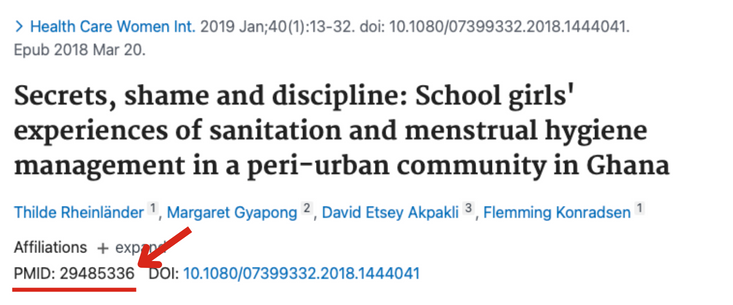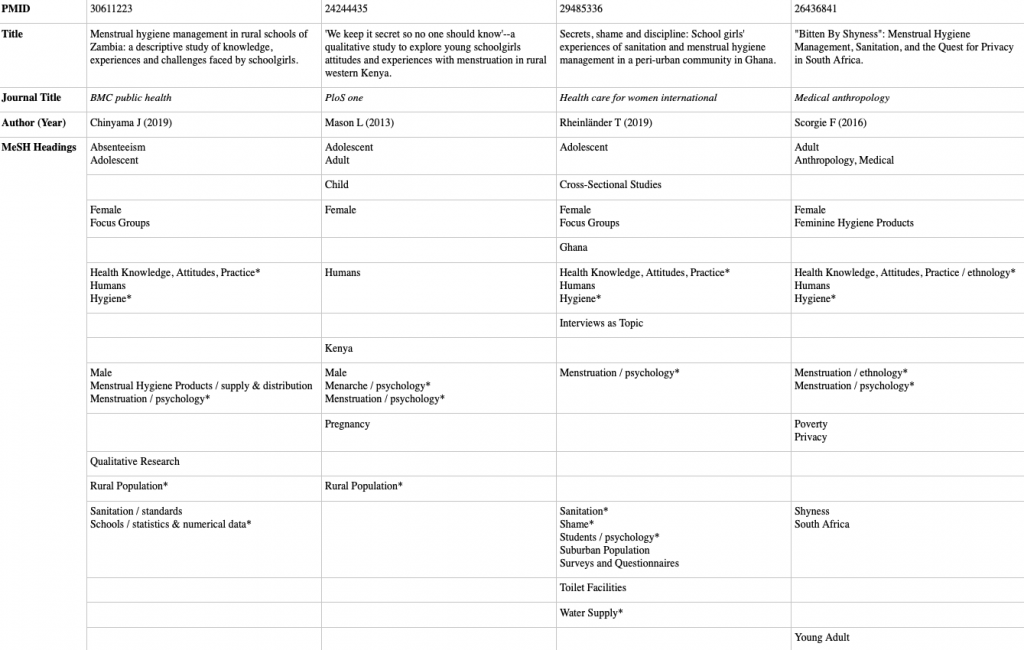We extend our gratitude to Ezra J. Teboul, our Master of Information Studies practicum student at Schulich Library over the winter term. In this guest post, Ezra offers some lessons learned from working with the Mossman Collection on the History of Science and of Ideas.
McGill’s libraries contain invaluable holdings for the historian of science. A researcher at the Canadian Museum of Science and Technology in Ottawa, I was until June also in the Master of Information Studies at McGill. In my last semester (Winter 2025), I studied the contents of the Mossman Collection on the History of Science and of Ideas at the Schulich Library for Physical Sciences, Life Sciences, and Engineering. Completed with the patient supervision and many insights of April Colosimo, a big part of my project was dedicated to quantitatively assessing how the collection had evolved since its donation by Donald and Dorothea Mossman in 1974. This teaches us not just about science and how it has evolved, but also about the way history of science has been done (historiography). It’s important to understand both because science is done by humans and requires continual, active investment by the individuals and institutions it needs and affects to have a positive impact.

This blog post illustrates how the Mossman can act as a good starting point for doing history and historiography of science and how these fields are interesting from an information access perspective because it is distributed across Library of Congress Subject Headings (LCSH). But how might an undergraduate or junior graduate student interested in the history of science navigate the Mossman collection and the wider McGill catalogue to learn about this complex topic? Below I give an example of a research thread that starts in the Mossman collection before extending to the University collections at large.
The McGill Libraries, like many research institutions, use the Library of Congress Subject Headings for classification and access. The LCSH have a tree structure, with headings, subheadings, and call numbers of increasing specificity, not simply cataloguing every book but also linking them across branches of this knowledge tree.
History of Science, however, is a young field with very interdisciplinary practitioners: historians of course, but also scientists, philosophers, sociologists, anthropologists, cultural and media studies scholars, etc. Many of its practitioners, like Karen Barad, start out in a technical field (theirs was quantum physics) before considering the history of those technical fields. It is also applied to almost every scientific, technological or medical topic: engineering, chemistry, mathematics, physics, biology… In that sense history of science is by definition always at least concerned with perspectives on the same technical topic: scientists, and how scientists’ view of their own work in their specialty has changed. I find it to be a particularly exciting, reflexive exercise that attempts to extend science’s inquisitive perspective (why is it like this?) to the people doing science themselves. But, from a practical perspective, it makes it difficult to categorize history of science and related publications.
Here is a graph of all the subject headings just included in the Mossman collection for the History of Science and Ideas. The blue corresponds to the contents of the collection in 1986, when a catalogue for the collection was made by the Schulich librarians. The red corresponds to the contents of the collection in 2025, when I collaborated with the McGill Libraries Collections department to do this study. To find every book on the online catalogue associated with the Mossman, look up the corresponding “uniform title.”

In this graph you’ll notice that most books are in the Science or Technology classes (LCSH classifications Q and T respectively) but there are 19 other headings as well. For a full list of the heading letters and their meaning, see Library of Congress Classification Outline. T, unsurprisingly, is technology, but science is Q and History is split across multiple headings: C, D, E and F (but it is notable to see that only very little of the Mossman items fall in any of these). The LCSH was first published in 1898, and this imbalance reflects the biases of scholarship in the United States at that point: a lot of academia was dedicated to historical research, while technology and science were only just becoming formal scholarly specialties. Engineering in the US and Canada had only had professional societies since 1852 with the American Society of Civil Engineers.
So doing history of science, is, from a bibliographic perspective, an interesting challenge. You can’t simply go to the stacks and find the right shelf. Books you will learn the most from may be shelves apart!
This is the value of collections like the Mossman, which used to show many of the best books on an interdisciplinary topic in the same location. With the increasing popularity of digital catalogue browsing, and the shift for the bulk of McGill collections to a robotic collections center, browsing the stacks is becoming a bit of a lost art—making all the more important the maintenance of specialized collections’ identities and purpose. If the much larger Osler history of medicine library has remained in its physical location on campus, the Mossman has been distributed across other branches, including off-site storage.
This makes the Schulich library a generous study space, but it means scholars have to trade luck in the stacks for clever digital browsing tactics. Indeed the Mossman—which over the years has included at least 6500 or so individual titles— mostly remains accessible somewhere in some form, and the rest of this post gives you a personal example of how you might access them and link them to resources from the rest of the collection.
Many of the references central to my own research are in or around the Mossman. My personal specialty is in the history of electronics, which mostly requires a knowledge of chemistry, elementary physics, signal processing, industrial manufacturing techniques, and computer science (and a few other things). One of my favorite books in the Mossman Collection is What Engineers Know and How They Know It: Analytical Studies from Aeronautical History by Walter Vincenti (1990). Its call number is TL515 V44 1990. Here is how that call number is constructed:
T: Technology
L: Motor vehicles. Aeronautics. Astronautics
515: History, General Works
V44 1990: "Cutter" number and year. These are determined by each library for further subdivision
You can already see how some categories unrelated to history (e.g. “Technology: Motor vehicles. Aeronautics. Astronautics” will get a historical subheading (e.g. “515”). You can also see how some subheadings (e.g. “General Works”) are somewhat vague. Classification systems like LCSH can only get you so far when doing thorough literature reviews, and it helps to speak to other researchers and subject librarians for ideas of other headings and subheadings to consider investigating.
In my case, although aeronautics may only seem partially related to electronics research, it turns out that during the Cold War, a significant amount of electronics research was undertaken for various Air Forces, especially in Canada and the U.S. Furthermore, the rapid expansion of those countries’ industrial production capacity via machine shops was in no small part funded by defense contracts which financed private companies to supply the corresponding militaries. In that sense, learning about how aeronautical engineers produce knowledge maps very informatively to the way that electrical engineers consume and produce knowledge as well. This is made clear in David Noble’s Forces of Production: A Social History of Industrial Automation, another landmark publication included in the Mossman collection. Published in 1984, it was therefore purchased by the Schulich librarians with the Mossman endowment, rather than by Mossman himself (since his collection was donated to McGill in 1974).
In Forces of Production, Noble traces the way that machining advances in the 20th century were in large part motivated by the exacting precision required to manufacture cutting-edge aircraft during the Cold War. Automated milling machines, now called CNC (computer numerical control) and CAD/CAM (computer assisted design / computer assisted machining) was an area of high research investment, resulting in dozens of electrical and electronic inventions which were easily exported (like some of the first analog/digital converter hardware architectures and prototypes) to a variety of other fields. Also in the Mossman, Forces of Production has the call number TJ1189 N63 1984:
T: Technology
J: Mechanical engineering and machinery
1189: Numerical control of machine tools
Interestingly, TJ14 is a category for philosophy and history of machinery. The decision that lead a social history of automation to not be under this subheading are lost to the circumstance of the cataloguer at the Library of Congress that made that decision. TJ1189 is not an illogical choice, and this simply highlights that knowledge classification systems always contain ambiguities that can only be addressed through experience, rather than simple common sense.
From Noble’s book we may want to consider histories of shop machinery prior to the adoption of CNC technology. Here Mossman collection text, Robert Woodbury’s 1960 History of the Milling Machine; a Study in Technical Development (TJ1225 W6 1960) is another interesting reference:
T: Technology
J: Mechanical engineering and machinery
1225: Machine Shops and Machine Shop Practice - General Works
From there we may want some additional context on the geopolitical conditions of the cold war and their impact on scientific and technological policies. Audra J. Wolfe’s Competing With the Soviets: Science, Technology and the State in Cold War America (2013)is a concise, clear and extremely informative summary of those exact topics. It is not in the Mossman collection, but it is clearly relevant to the history of science as a research discipline. From a collection development perspective, the Mossman is an interesting, specialized subset of the Schulich catalogue that does not include all the references which might fall under its purview (being tagged with the Mossman uniform title is more dependent on whether or not the Mossman endowment fund was used to purchase the resource). Furthermore, Competing with the Soviets call number is squarely in the sciences, as part of its specialized history subheading:
Q: Science
127: History, by region or country
U: United States
If we are looking for something more specific to Canada, we might appreciate the work of Edward Jones-Imhotep, whose 2017 book The Unreliable Nation: Hostile Nature and Technological Failure in the Cold War closely examines the unique conditions which shaped Canada’s scientific research policy in the same period. Although only available at McGill as an ebook, a paper copy is listed at the Canadian Museum of Science and Technology’s library under the call number T23 A1 J66 2017:
T: Technology
23: History, Special Regions or Countries: Canada
Overall, this illustrates the LCSH system’s approach to classification of interdisciplinary topics. Although Jones-Imhotep work is clearly about technology, and T23 is a meaningful and helpful cataloguing heading for it, it is not entirely unrelated to science, and could easily have been part of the Mossman Collection, even as an ebook.
When doing a literature review for a new subject, it is always informative to keep track of the additional labels entries are tagged with, often drawing from multiple cataloguing systems. Cataloguing librarians know very well that only giving one label is rarely a fair representation of our complex thoughts and rich publications, and this is why additional labels are attributed to each entry. For example, with Jones-Imhotep’s book in the Sofia catalogue:

All of these are hyperlinked so that books with that tag are just a click away. Keep in mind, too, that history and historiography of science and its many connected disciplines are active projects with lively communities in constant change!
To learn more on the topics in this post, the articles below will provide you with extensive context and additional examples. They are all accessible through Sofia as well.
- Barr, Zachary, Alex S. Ratowt, and Stephen P. Weldon. 2024. “The Isis Bibliography: Information Practices from Sarton’s Vision to the Digital Age.” Isis 115 (3): 491–502. https://doi.org/10.1086/731408.
- Hérubel, Jean-Pierre V. M. 2006. “Clio’s View of the History of Science: A Preliminary Bibliometric Appreciation.” Behavioral & Social Sciences Librarian 24 (2): 69–91. https://doi.org/10.1300/J103v24n02_03.
- ———. 2007. “Periodizations and History of Science: A Perspective and Approach for Collections.” Collection Management 31 (3): 59–72. https://doi.org/10.1300/J105v31n03_05.
- Stone, Alva T. 2000. “The LCSH Century: A Brief History of the Library of Congress Subject Headings, and Introduction to the Centennial Essays.” Cataloging & Classification Quarterly 29 (1–2): 1–15. https://doi.org/10.1300/J104v29n01_01.
- Whitrow, Magda. 1964. “Classification Schemes for the History of Science.” Journal of Documentation 20 (3): 120–36. https://doi.org/10.1108/eb026344.
Ezra J. Teboul





















